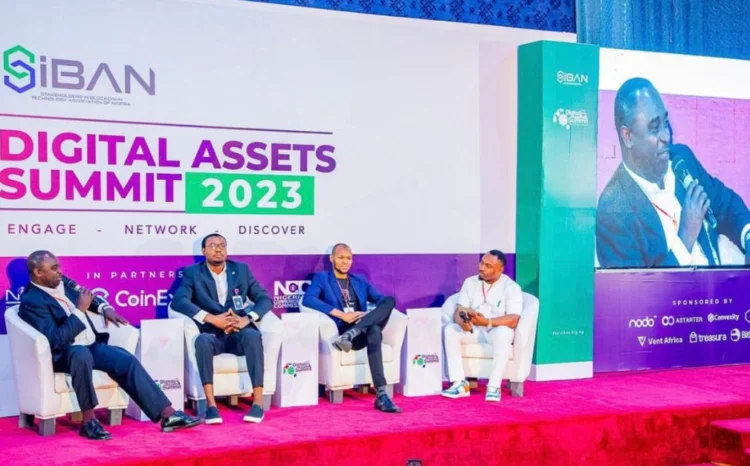At the Stakeholders in Blockchain Technology Association of Nigeria (SIBAN)’s Digital Assets Summit 2023 in Abuja, Adedeji Owonibi, CEO of Convexity, said the Central Bank of Nigeria should have created a blockchain regulation strategy in 2021.

In the panel titled The Future of Digital Assets: Regulatory Uncertainty and the Way Forward, the panelists discussed why Nigeria has been sluggish in implementing digital assets regulation and blockchain policy.
According to Adedeji Owonibi, CEO of Convexity, the National Information Technology Development Agency‘s (NITDA) developmental regulation is a significant step toward comprehending and creating a favorable environment for the blockchain and cryptocurrency industries.
The Central Bank of Nigeria (CBN) should have taken this action in 2021 instead of severing ties between cryptocurrency exchange firms and local institutions, according to Owonibi.

Preye Itonyo, deputy director of the agency’s Digital Economy Development Department, acknowledged NITDA’s progress in developing a blockchain policy.
Still, he emphasized the regulatory obstacle posed by the decentralized nature of blockchain, which has led to a lack of understanding of blockchain and cryptocurrency concepts in Nigeria. He stated that this misunderstanding prompted the crypto/traditional finance prohibition of 2021.
In a recent global survey, the population of Africa’s largest economy, Nigeria, was found to be the most knowledgeable about cryptocurrencies, and 90% of Nigerian respondents expressed interest in investing in cryptocurrencies over the next year. However, the industry requires regulation to promote security while encouraging scalability.
In response, Itonyo stated that Nigeria’s first move towards ensuring the security and protection of cryptocurrency investors was establishing a blockchain policy.
He then disclosed that NITDA has established a steering committee to facilitate implementation strategies for the national blockchain policy. According to Itonyo, the Central Bank of Nigeria (CBN) and the Nigerian Communications Commission (NCC) are committee members.
